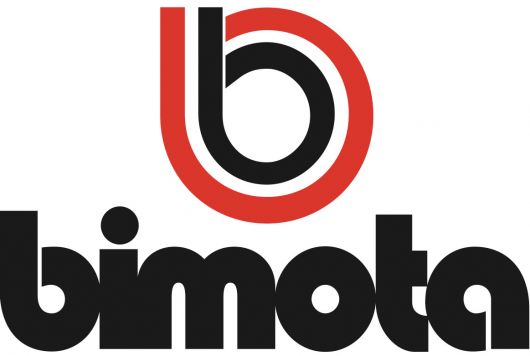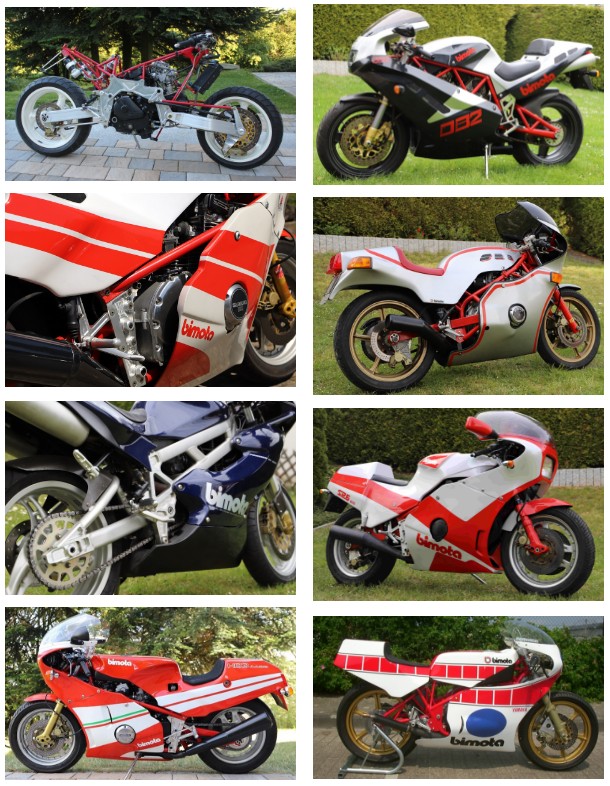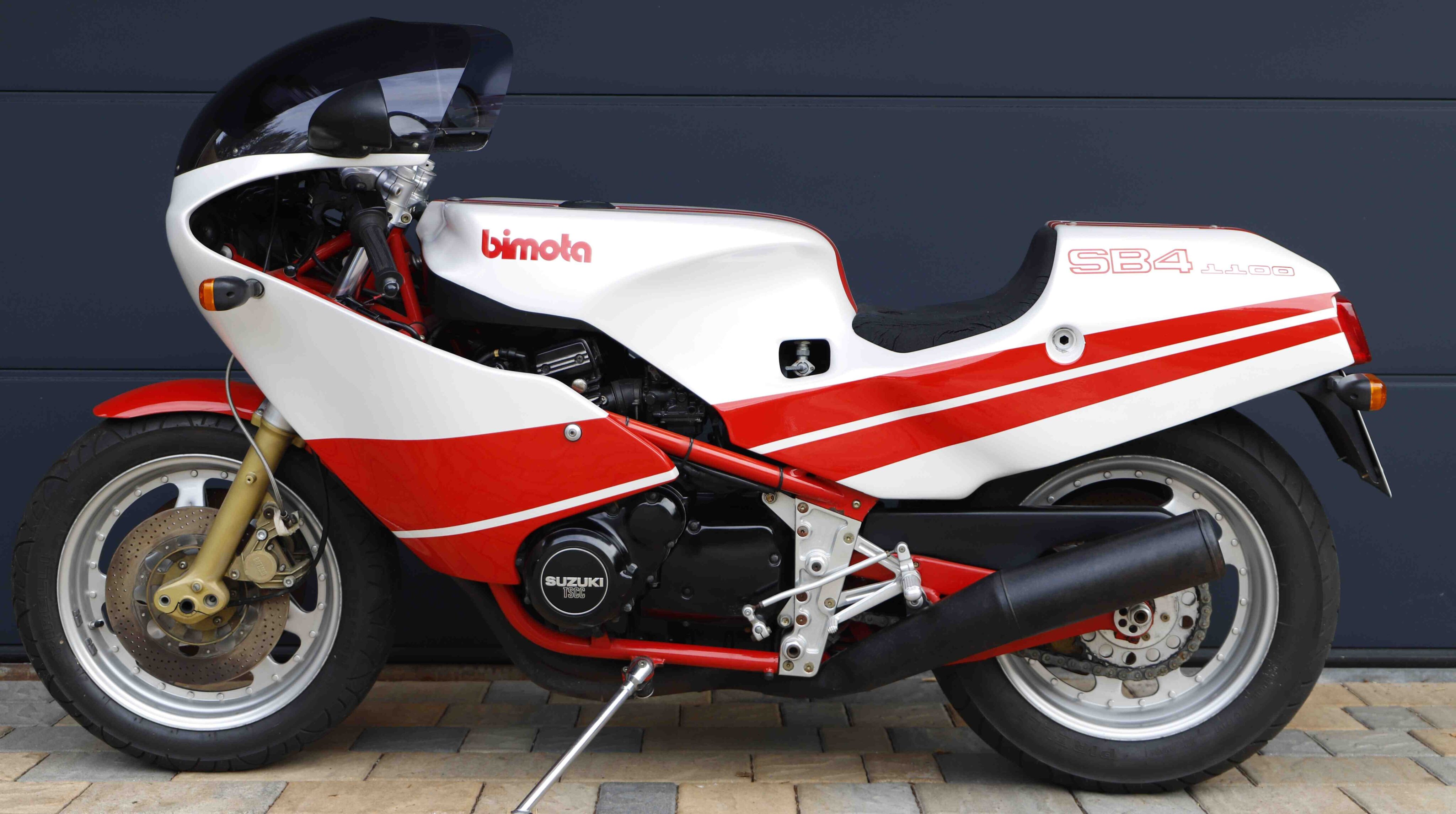
| Designer | Massimo Tamburini | First presentation | Bologna 1982 |
| Production period | 1983 – 1984 | Production numbers | 272 thereof 154 as kits |
| Power | 82 KW (112 PS) | Displacement | 1075 ccm |
| Topspeed | 250 km/h | Weight | wet 232 kg dry 219 kg |
| Price | 30.900 DM (1984) | Colours | 234 white / red 38 grey / red |
| Technical basis | Suzuki GSX 1100 E | Suzuki GSX 1100 Katana |
The SB4 utilizes the frame construction introduced with the HB2 and is available in both a half-fairing version (166 units) and a fully-faired version, the SB4 S (106 units), priced at 32,600 DM. It is powered by the engine from the Suzuki GSX 1100 E or Katana. A unit featuring a roller-bearing crankshaft, dual overhead camshafts, four valves per cylinder (actuated via rocker arms), and 34 mm Mikuni carburetors. In its unrestricted version, it produces 112 hp. However, due to the voluntary power limitation imposed by importers at the time, only 100 hp remained available in Germany.
The Suzuki engine had already been offered as the top-tier powerplant in the GSX 1100 E and Katana since 1981. Compared to the engines used in GS models up to 1980, this new generation features a completely redesigned four-valve cylinder head with a centrally positioned spark plug. The combustion chamber, with its flat piston design and TSCC (Twin Swirl Combustion Chamber) geometry, enables dual air swirl effects. This Suzuki-patented process improves efficiency, resulting in significantly better emissions and fuel consumption figures.
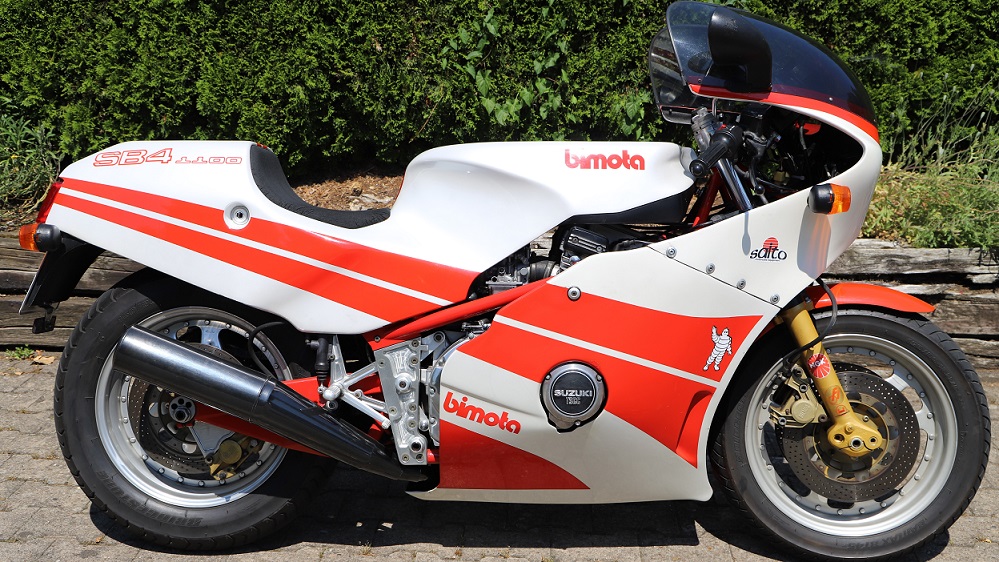
What impresses most about this engine, however, is its smooth operation and substantial torque, power is available in any situation. You can effortlessly cruise through a town in fifth gear and, upon exiting, open the throttle from 50 km/h. The engine pulls strongly without hesitation, drawing from its ample torque reserves and delivering an impressive forward surge, accompanied by the unmistakable sound of an air-cooled inline-four. This characteristic had already impressed me on the Suzuki, and it holds true for the SB4 as well, even if it doesn’t entirely align with the bike’s intended character.
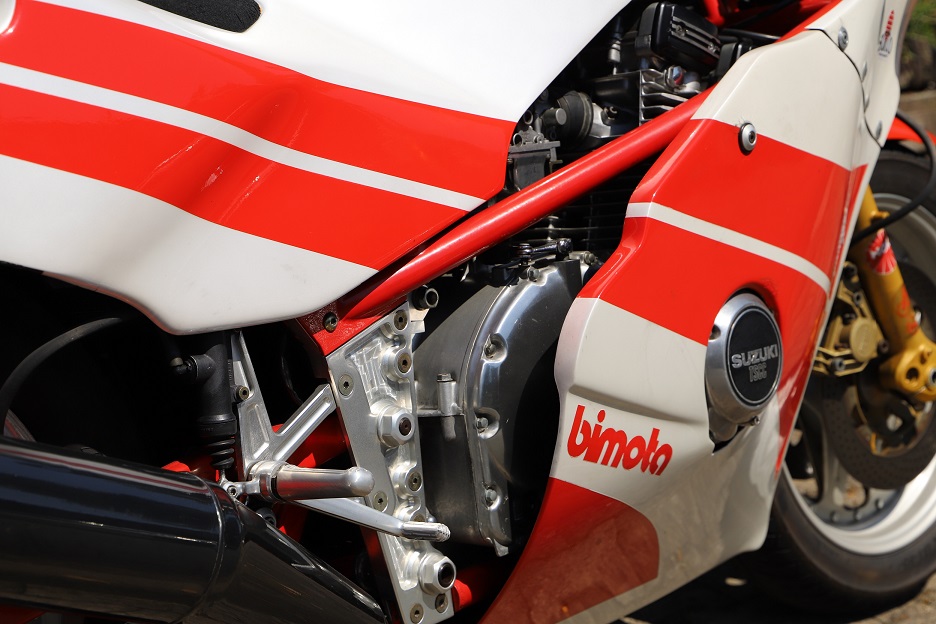
In a comparison test published in MOTORRAD magazine (Issue 17/1983), the SB4 was evaluated alongside an Egli and a Moko, both of which also used the GSX 1100 E / Katana engine. The SB4 won over the testers and was the only bike to receive exclusively positive remarks. In contrast, both the Egli and Moko exhibited shortcomings in terms of chassis and equipment when compared to the other high-end machines in the 30,000 DM price range.
„The Bimota was astonishing not only for its absolutely stable handling on the Nürburgring’s Nordschleife but also for its high-speed stability on the Autobahn. Even deliberately induced disturbances were absorbed without complaint by the red-painted trellis frame. … Bimota’s attention to detail seems boundless. Even minor aspects, such as the foot brake lever stop and the upper fairing mount, are perfectly engineered.“
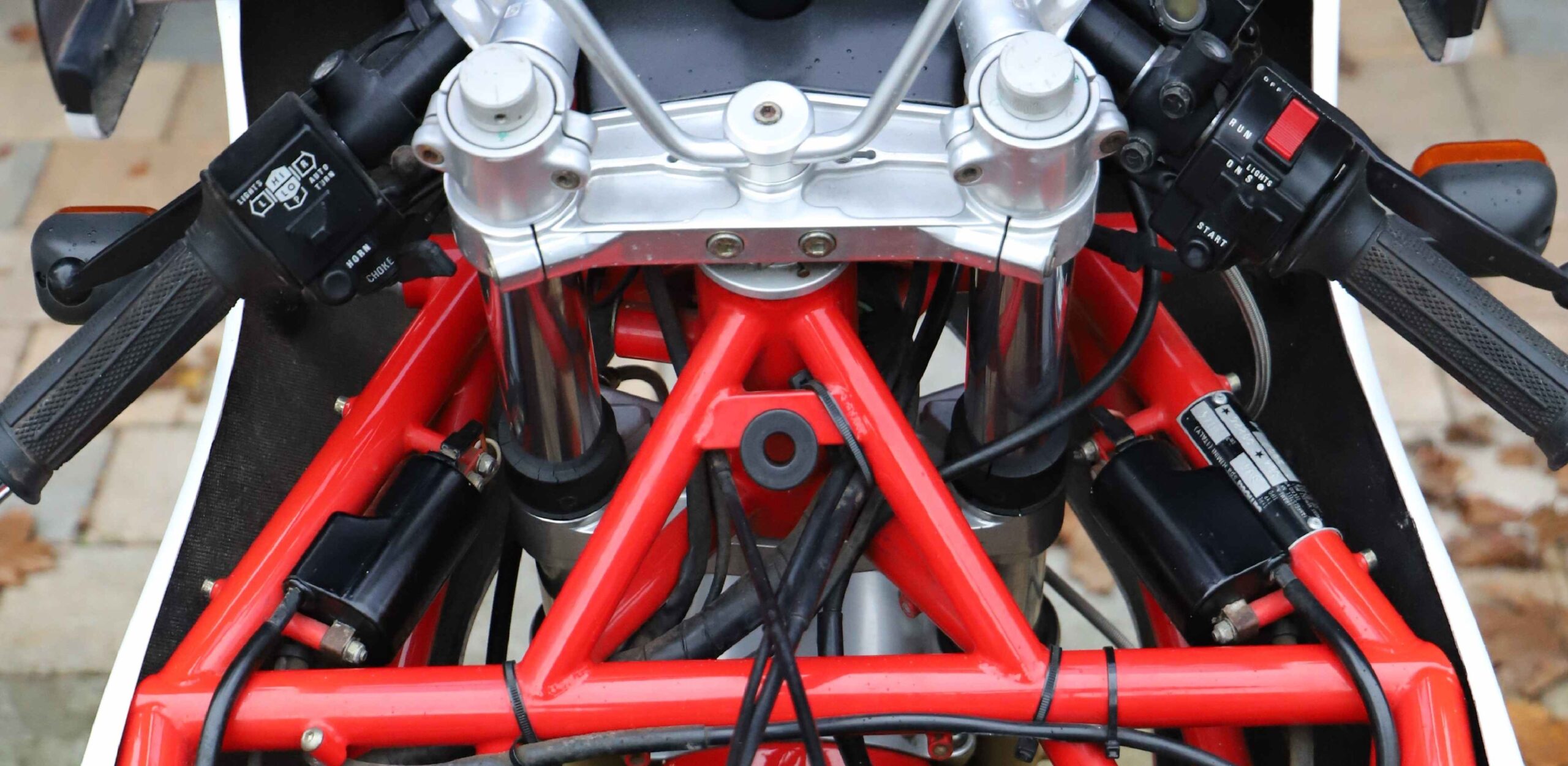
The SB4 with a half fairing was listed at DM 30,900 in the 1984 price lists. The kit version was offered for DM 22,790. The surcharge for the fully faired version was also significant. The SB4 S was priced at DM 33,400, an increase of DM 2,500.
